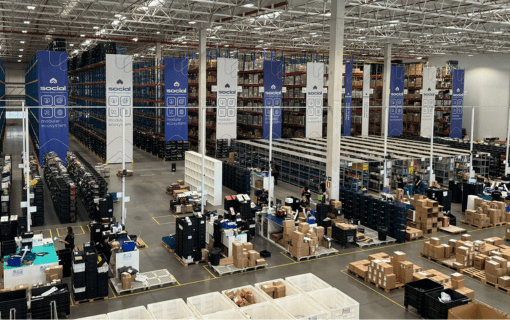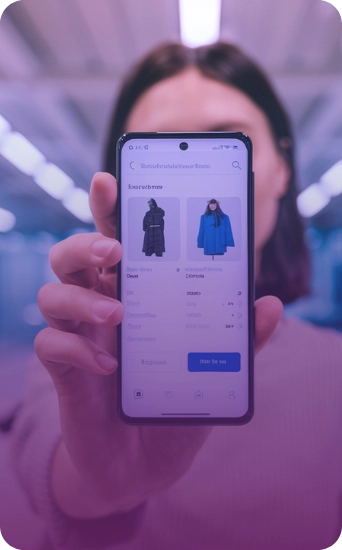How to avoid problems with Procon on Black Friday

Black Friday has become one of the biggest consumer dates in Brazil, but more than just a season of discounts and big sales, this period requires extra attention to consumer rights. The date, adopted by Brazil in 2010, is a phenomenon imported from the United States, where it has existed since the 1960s, transforming the end of November into a period of intense competition between shopkeepers, aggressive promotions and stock burning. However, along with the opportunities come challenges. Black Friday is known for its large number of offers and also for the presence of deceptive practices that put consumers at risk. As a result, bodies such as Procon and the National Consumer Secretariat (Senacon) closely monitor the market to prevent abuse and protect consumers. Procon, for example, publishes an annual list of online stores to avoid, updating it with companies that have already registered fraudulent practices in past editions of Black Friday. Consumer rights on Black Friday: main precautions To ensure that purchases are made safely and avoid future problems, companies need to carefully observe the Consumer Protection Code (CDC), which establishes important guidelines to protect the end customer and avoid abusive or illegal practices. Below are the main points to be observed for a safe Black Friday: Avoid "Black Fraud" (Articles 37, 66 and 67 of the CDC) The term "Black Fraud" is used to describe cases in which prices are made up or there is a lack of transparency in promotions. It is common, for example, for companies to raise the price of products before Black Friday, and then apply a fictitious "discount" which, in fact, corresponds to a higher or equal price than the original. This type of practice is considered a crime by the CDC, which provides for imprisonment of up to one year for the practice. The law also prohibits any abusive or misleading advertising, divided into two specific concepts: Prohibition of tie-in sales (Article 39 of the CDC) The CDC prohibits practices such as tie-in sales, which make the supply of a product or service conditional on the supply of another product or service. Clear and precise information (Article 31 of the CDC) Transparency is essential. The description of products and services must be complete and detailed, clear, precise and in Portuguese. Any risk the items pose to the consumer must also be indicated. Respecting deadlines and complying with offers (Articles 35, 39 and 56 of the CDC) Failure to stipulate a deadline for delivering what has been purchased is an abusive practice and subject to administrative penalties. Respecting the delivery deadline and honoring the advertised price are also legal obligations. If delivery is not possible for any reason, the CDC offers consumers three options: demand forced compliance with the agreement, accept another equivalent product or terminate the contract with a refund of the amount paid and the right to compensation for any damages. The importance of an ethical and transparent Black Friday Promoting a safe and compliant Black Friday is essential for companies that want to maintain a good relationship with their customers and avoid legal penalties. A commitment to transparent and ethical practices is both a way of strengthening consumer confidence and ensuring that the company is not on lists of stores with questionable practices, such as the one published by Procon. By acting responsibly, companies can take advantage of the period to build customer loyalty, as they will feel respected and supported in their purchases. This respect for consumer rights and the effort to maintain an ethical and legal stance are differentials that contribute to success on Black Friday and help build a long-term relationship between companies and their customers.
Social Digital Commerce estimates a 385% increase in sales for Black Friday 2024. The "Black Without Limits: Full Mode Activated" campaign sets the tone

The countdown to Black Friday has begun! Although the official date is November 29th, at Social Digital Commerce the entire month of November will be a busy time. With an estimated growth of 385% in turnover in 2024 compared to the previous year, Social is launching its campaign: Black Without Limits: Full Mode Activated! As the main player in the Full Digital Commerce market, Social fulfills its mission of "Unlimited Digital Commerce" with sales, marketing and fulfillment solutions that integrate to offer the desired full commerce, or full service. That's why "No Limits", also used in 2023, continues to be the brand's positioning, which this year features "full activated mode", in reference to the segment, but also to the attitude that the team of experts has towards the date. Not surprisingly, the campaign features visual elements related to energy and strength, as well as elements that refer to the entire journey of action. The focus is on continuing to offer the best service experience for customers and consumers, guaranteeing agile deliveries on this very special date for online retail, just as is guaranteed throughout the year, even with the high volume that the date brings. On Black Friday 2023 there were an average of four items per order, with 90% of deliveries made on the same day! For 2024, our projection is that 350% of orders will be placed during the four days of Black Friday, with an average of 6,000 orders per day. Here at Social Digital Commerce, and our more than 80 clients, we're ready for a historic Black Friday! Have you activated your full mode? Get ready for success!
Unified Marketing: what is it? How to use it in e-commerce?

The buzzword of the moment in the world of retail and e-commerce is unified commerce. But for this to become a concrete reality, it is essential to focus on another buzzword: unified marketing. This concept goes beyond simply integrating sales channels; it's about creating a complete ecosystem in which valuable data flows in real time between each point of contact with the customer, generating relevant, personalized and, above all, hyper-segmented journeys. At the heart of this ecosystem is the ability to capture and consolidate data from different sources, both online and offline. Imagine that a customer visits your store's website and browses several categories. At the same time, they interact with displays at the physical point of sale or scan a QR code to get more information about a product or to download rich content, such as a cookbook or self-machining course, via a landing page. All this data is automatically sent to the CDP (Customer Data Platform) within your CRM. The importance of a robust CDP structure For this, it's important to have a robust, synergistic CDP structure that captures data from various interactions, such as: All this data is collected, organized and used to feed a CRM platform, which distributes it intelligently. Creating personalized journeys with CRM With this data from different sources in hand, the next step is to create personalized journeys. CRM allows the creation of hyper-segmented audiences to feed Ad Managers and relationship rulers with targeted campaigns, both by email and through multiple media. In this way, clusters are created based on behaviors, preferences and interests demonstrated at all these points of contact. These audiences can be impacted in a continuous and integrated way on platforms such as Google, programmatic media, dynamic showcases in e-commerce, social networks and even at the physical point of sale, ensuring that the consumer receives coherent messages throughout their journey. This means that, as well as maintaining personalized and relevant communication, you maximize the efficiency of your campaigns, reaching the right audience with the right message at the right time. In today's scenario, where interactions with consumers take place across multiple channels, having an integrated data ecosystem is essential to delivering a unified and personalized shopping experience. Unified marketing ensures that each touchpoint is relevant and strategic, supporting customer decision-making and increasing the chances of conversion. In the end, all unified marketing feeds into unified commerce. By combining online and offline data, you create a cycle in which each consumer interaction strengthens the shopping experience, resulting in more fluid and impactful journeys.
Black Friday 2024: Challenges and opportunities in e-commerce

The period before, during and after Black Friday represents a real test for the efficiency and flexibility of logistics operations. Driven by the growth in online sales, companies need to adapt quickly to meet the increased volume of orders while maintaining quality of service. But what are the main strategies adopted by logistics companies to meet the challenges of this date? The role of technology and strategic partnerships in building a more robust and adaptable operation is essential for e-commerce companies to stand out on this day. Operational changes to cope with high demand During Black Friday, logistics companies implement significant operational adjustments to cope with high demand. Firstly, it is common to increase storage capacity, expanding temporary stock spaces to ensure that products are available for prompt delivery. In addition, there is intensive hiring of temporary labor, reinforcing the team with extra employees who help maintain the pace and efficiency needed to meet the high volume of orders. Another relevant adjustment is the optimization of routes and investment in automation, with the aim of improving the speed and accuracy of deliveries, ensuring that products reach customers in the shortest possible time. These strategies, although highly effective, require careful management so that the quality of processes is not compromised. Maintaining a balance between agility and excellence in service is essential to achieving positive results during the Black Friday period, providing a satisfactory shopping experience for the consumer and maintaining the company's competitiveness in the market. What challenges are common? The challenges for logistics multiply during this period. Among the main ones are: Companies are investing in advance planning and rapid workforce training to ensure a flexible and agile operation. These actions help to soften the impact of seasonality, allowing for more efficient service and an improved customer experience. Transformation through automation and artificial intelligence The adoption of technologies such as automation and artificial intelligence is still in its early stages for many companies, but is already showing promising results. With more advanced monitoring systems, companies are able to predict demand and adjust stocks in real time. Although the initial costs are high, the long-term benefits, such as greater resilience and operational agility, are clear. Inventory management strategies for high seasons Inventory management during Black Friday is critical to avoid stock-outs and guarantee product availability. Some strategies used include: These practices help ensure product availability, reducing the risk of customer frustration and increasing efficiency. The role of carriers Logistics partners and third-party carriers are crucial during Black Friday. The flexibility, temporary storage capacity and technology that these partners bring help companies scale their operations quickly. Coordination and advance planning are essential to maintaining a flawless operation, reducing costs and improving the customer experience. Reduced delivery times and customer satisfaction Meeting fast delivery expectations has become a crucial competitive differentiator for companies, especially during Black Friday. To achieve this, many companies are focusing on optimizing the supply chain, keeping suppliers close and establishing agile replenishment flows. This allows products to reach distribution centers and be shipped to customers in less time. Another strategic point is to locate distribution centers close to the main consumer markets. This reduces the distance products have to travel, which considerably speeds up delivery times. In addition, partnerships with carriers and flexible delivery models are essential to cater for different customer profiles, offering options such as express delivery, pick-up at convenience points and other alternatives that suit the needs of each consumer. Combined, these strategies not only help to reduce delivery times, but also guarantee a positive experience for the consumer, reinforcing trust and increasing brand loyalty. Reverse logistics and returns management During Black Friday, the volume of returns also increases. With proper operational planning and clear communication, companies can minimize the impact of exchanges and returns, as well as improving the after-sales experience and building customer loyalty. Trends for temporary distribution centers and urban hubs The use of urban hubs and temporary distribution centers continues to grow, as they offer a practical solution for short-term storage and distribution. Companies are also increasingly focusing on sustainability, with solutions such as electric vehicles and green logistics practices. Free shipping and fast delivery: impact on cost and customer satisfaction Although these options increase operating costs, they are increasingly demanded by customers. The key for companies is to balance costs with customer satisfaction by implementing technologies and partnerships that help optimize logistics. The challenges facing the logistics sector during Black Friday are numerous, but companies are increasingly prepared to face them. Digital transformation, investment in automation and building strategic partnerships are key to creating an operation that not only meets demand, but also exceeds consumer expectations. The success of these practices depends largely on the ability to innovate and adapt quickly, while always keeping the focus on quality and the customer experience.
The potential of full commerce on Black Friday

Regarded as the main retail date, the expectation of buying for Black Friday 2024 is high, as 66% of Brazilians plan to take advantage of some offer, according to a survey by Wake, in partnership with Opinion Box. Boosting global trade, the period demands solutions such as Full Commerce, which contributes to the professionalization of online store management, thus minimizing the amateurishness of e-commerce. This year, on November 29th, Black Friday will last for weeks with initiatives such as "Black Week" and "Black November", demanding agility in operations management. In fact, more than 30% of Brazilians started monitoring the price of products in July, which indicates early financial planning on the part of consumers in order to take advantage of excellent and significant offers. The role of the marketplace in this context Today, marketplaces are seen as the main destinations for customers in this period, which reinforces the growing digitalization of consumption and, above all, shoppers' preference for online channels in the search for the best deals. The Confi report, in partnership with E-Commerce Brasil, indicates that more than 70% of online sales in the first half of this year came from marketplaces, whether specialized or not. This emphasizes consumers' preference for e-commerce, especially for high value-added products such as household appliances, electronics and telephony, given the wide assortment of products, which guarantees customers more time and possibilities within the platform. In this sense, Full Commerce is a complete and effective solution, capable of optimizing digital strategies to strengthen the brand and increase sales, while meeting customer expectations in terms of speed, warehousing, receiving orders, picking, packing, delivery, customer service and customer support. Advantageous or not? Offering a panoramic view of the business, the model has specific advantages for the development of virtual stores, thus bringing greater efficiency and scalability, primarily during periods such as Black Friday. Helping to reduce operating costs, the solution also has data that contributes directly to more assertive methodologies, as it monitors the store's performance, interprets valuable information and makes the necessary adjustments according to the target audience's buying behavior. In short, Full Commerce minimizes the complexity of the operation by identifying bottlenecks and looking for strategic resources that make a difference in delivery management, for example. In fact, Full Commerce determines the success of e-commerce on the main retail date. Able to connect all ends of the online shopping journey, the methodology plays a crucial role in converting, attracting and retaining customers. Is it worth investing in Full Commerce? In order to maximize opportunities, executives who adopt Full Commerce as a strategic approach will be able to stand out and, consequently, win a significant share of the market during Black Friday. I advise retailers to invest in robust technological infrastructure, efficient logistics, personalized campaigns and, above all, to anticipate their demands in line with customer needs. Having a partner who specializes in Full Commerce enables a scalable 360 digital operation. According to a survey by Opinion Box and Dito, 43% of consumers intend to spend more, which indicates that they will spend more than 2023 for the date. This confirms a successful Black Friday, especially for retailers who invest in personalization, omnichannel, sustainability and technological innovation. There is no doubt that Full Commerce is beneficial for companies, given the volume of online sales that this year's Black Friday is expected to generate. In fact, according to estimates by Neotrust Confi, consumption via e-commerce is expected to be 9.1% higher than last year, which is optimistic for the global economic scenario.
Digitalization is the next step your business needs to grow!

Find out about the success stories that rely on Social Digital Commerce to strengthen their presence in the digital world. Concha Y Toro, the world's most admired wine brand, performed exceptionally well on Black Friday 2023, exceeding its sales target by 154%. This success was possible thanks to our partnership, where we offer innovative and integrated solutions to connect the physical and digital worlds, guaranteeing a complete shopping experience. Our main differentiators include: At Social, we led Concha y Toro's Full Commerce management, taking care of the administration of its flagship, marketplaces and delivery apps, with efficient logistics from the logistics centers. The relaunch of the Xuxa doll by Estrela was a real phenomenon! By relying on our solutions, Estrela provided an unparalleled shopping experience, delighting both new consumers and nostalgic fans. The result was impressive: 940 dolls were sold in just 15 hours at the brand's flagship store, with orders invoiced in 24 hours. Why Social? By bringing the challenge to us, Estrela had access to a robust, multi-channel operation that boosted sales and guaranteed extraordinary results. The main differentials of this partnership were: In an iconic relaunch, Xuxa's doll shone again, and Estrela, alongside our team and structure, showed that combining tradition and innovation is the key to success. When the focus is on the client and operations are well managed, the results are extraordinary. Our modular ecosystem boosted Estrela's digital presence, which reaffirmed its place in the hearts of Brazilians. Recognized worldwide for producing the iconic Cachaça 51, Estrela has always been a benchmark in the distilled spirits segment in Brazil. The company was looking to evolve its presence in the digital market as a way of keeping in touch with its public. For this challenge, Companhia Müller chose us as a partner to digitize the business and present its portfolio in an innovative and efficient way. Why Social? The decision to take the first step in its digital presence was a strategic one for Companhia Müller, and the main reasons for choosing us as a partner were: We took on the complete management of Companhia Müller's digital operations, which included flagship, marketplaces and fulfillment with logistics centralized in our distribution center located in Extrema, Minas Gerais. This demonstrates how digitalization and innovation are essential for the expansion and strengthening of traditional brands in the current scenario. With 60 years of history, Brandili is a reference in children's and teen fashion in Brazil, recognized for the quality and comfort of its products. In 2024, the company began operations with us, relying on the expertise of our team of specialists to strengthen its e-commerce presence and offer a complete shopping experience for its consumers. Why Social? Brandili chose Social to achieve strategic objectives, such as: We manage Brandili's end-to-end operation, taking care of the flagship, marketplaces, customer experience (CX), digital performance and product distribution, operated by our logistics center in Itapevi, São Paulo. This partnership brings together tradition and innovation in the competitive children's and teen fashion market. Beyoung is a leading brand in its skincare and make-up segment with cruelty-free, vegan and sustainable products. Seeking to reduce labor costs and gain agility in areas such as IT, logistics, transport and platform, the company chose us to optimize its operations and transform its performance. Why Social? The main differentiating factor was the customization of the operation, something that Beyoung hadn't been able to achieve until then. The solutions offered include: We are responsible for managing Beyoung's e-commerce, covering fulfillment, flagship, marketplace and CX in both B2B and B2C. This partnership exemplifies how the combination of technological innovation and operational excellence can transform companies, enabling them to reach new levels of competitiveness and success.
Fulfillment: guaranteed good results on Black Friday

The most important date for online retail is just around the corner, and the question is: will the products your customers buy on Black Friday be delivered? That's why we're going to talk about fulfillment, which encompasses all the stages of order processing and delivery, from product separation to arrival at the customer's door. During Black Friday, efficient management of fulfillment parameters is essential to guarantee customer satisfaction and sales success. It is crucial that the agreed deadlines are met and that deliveries arrive on time at consumers' homes. Don't improvise! Black Friday needs to be planned in advance. This is the most important moment in the process. With a six-month view in advance of the date, it is possible to analyze, forecast and revise demand, examine the sales history of previous years and identify which products are most in demand by the public. This ensures that stock is adequate and that resources are planned to optimize fulfillment operations. Sell what you can Sell a product that is out of stock generates dissatisfaction and can damage the company's reputation. To avoid this problem, a good practice is to maintain strict stock control using management systems (ERP/WMS) that automatically update available quantities, aligning sales forecasts with suppliers' purchasing plans. This helps to ensure that stock is always in line with demand. Another important point is the strategic location of products in the warehouse. This is essential for optimizing order picking times. Automated mode Automation plays a crucial role in fulfillment during Black Friday. The use of advanced technologies, such as A, B, C stock curve management systems, strategically positioned and systematically stocked picking locations, as well as picking automation through various AI tools, can significantly reduce order processing times. These automation tools help to optimize storage, pick orders faster and ship more accurately. Automated systems allow operations to be monitored in real time, making it easier to track the status of each order and resolve problems more quickly and efficiently. You have to deliver In order for the entire fulfillment journey to be carried out well, it is essential to avoid problems when delivering products. At this point, it is essential to work with multiple transport partners, diversifying delivery options and minimizing the impact of possible delays, especially by offering same day and next day delivery options. It's also important to have a team trained to deal with the fast pace of operations on the most important date of the year. And, of course, negotiate SLAs (Service Level Agreements) in advance to ensure that expectations are properly met. Need a change? Problems with orders (or the famous discrepancies) can occur with online purchases, and during Black Friday this can be even more common due to the increase in sales. In this context, it is essential to have clear and easy-to-understand exchange and returns policies, so that the consumer can carry them out without difficulty. Data and insights The forecast of any company with online sales carries a lot of weight during Black Friday, and at this point, data is a great ally! At the start of planning, it's crucial to have access to accurate figures in order to prepare well. Throughout Friday (and the weekend), it's equally important that these insights are updated. Business Intelligence (BI) is a fundamental part of Black Friday fulfillment. With it, metrics such as order processing time, return rate, level of customer satisfaction and delivery time should be monitored in real time. This makes it possible to identify bottlenecks in the operation and make adjustments quickly. In addition, BI helps with strategic decision-making, improves operational efficiency and guarantees the best possible customer experience. Personalization: a competitive differentiator In addition to good fulfillment practices, another important point that sets companies apart during Black Friday is personalization. This involves everything from creating a strategy to offer a customized shopping experience to the moment the product is delivered. Whether through differentiated packaging, personalized messages or products tailored to the consumer's preferences, a personalized approach can be decisive on Black Friday, when the competition for the customer's attention is intense. Combining strategies Satisfaction, differentiation, loyalty and increased value - combining these elements in strategies during periods such as Black Friday ensures that customers are even more likely to buy outside of a specific date. These actions help to build an emotional relationship with the consumer, generating a connection that goes beyond digital. Personalization executed within full commerce is a powerful strategy for delighting customers during Black Friday and standing out from the competition. A company's success on Black Friday goes far beyond offering good promotions and discounts. The management of these assets plays a crucial role in ensuring customer satisfaction and sales success. Investing in a full commerce operation, with an efficient fulfillment operator, not only brings immediate results during Black Friday, but also helps build a solid reputation, increasing customer loyalty and preparing the company for long-term growth.
What is Unified Commerce?

Referred to as the integration of all sales channels on a single platform, the Real Unified Commerce concept brings even more value to the consumer, as it improves the customer experience at different points in their journey and, consequently, the relationship with the brand. This strategy gives shopkeepers the security of creating a higher performance experience for the consumer, since the data is processed and analyzed on a single platform, providing the customer with a one- or two-click purchase, regardless of the channel. The fact is that ten years ago we were debating the advantages of omnichannel for retail and today we are evaluating its possible evolution with unified commerce. The common point between the two strategies remains the same: optimizing the shopping experience. After all, the main asset of the business is and always will be the customer. However, I believe that we have not yet taken the first step towards omnichannel, with the aim of really improving the customer journey through channels that convert sales from physical to digital retail and vice versa. I believe that Unified Commerce is the second step in this journey, which mainly seeks to optimize the consumer experience by promoting a more fluid, organic, fast and natural purchase between the brand's channels. Remembering that the advance of unifying all data, logistics and means of payment must not overshadow the concern for the customer at the end. In fact, the industry's high demand for D2C solutions, in which sales are made directly to the end consumer, without intermediaries, is remarkable. Not surprisingly, Social has seen an increase of 70% in the number of customers seeking this alternative in the last year, in order to understand the real customs and, above all, the needs of the buyer, something that is often impossible to map in the distribution channel alone, for example. The data is fundamental in developing new products and campaigns, as well as helping to monitor the most effective channels for a given company. It is possible to create commercial policies, as long as they are appropriate, thus making D2C more of a sales channel, i.e. an alternative and complementary solution that does not exclude sales by shopkeepers, resellers or even specific stores. Therefore, the current challenge lies in training the people at the top of the retail chain. Investing in efficient training makes the analysis of this data more strategic, while a well-trained team interprets the information and effectively guides the industry and retailers. The data dictates the rules of the game and thus determines which path to follow, guiding the salesperson in this conversion process based on unification. When we understand the customs and needs of each customer, we can effectively increase the conversion of an abandoned cart, for example. Therefore, there is an arduous and challenging road ahead, which increasingly demands, in addition to employee training, investment in new technologies such as artificial intelligence to boost retail productivity while reducing costs.
6 marketing strategies for Black Friday in D2C e-commerce

Strategic planning ensures a positive and lasting impact for brands' e-commerce The biggest sales season of the year is approaching. Held annually on the last Friday in November, Black Friday 2024 will take place on the 29th. According to the study "Intention to Buy on Black Friday 2024", carried out by Wake in partnership with Opinion Box, 66% of Brazilians intend to take advantage of the promotions. In fact, the majority of consumers (58.2%) will make their purchases via e-commerce. The survey also points out that 55% of consumers will buy items considered necessary, while 45.9% will look for objects of desire, such as those that remain in favorites or in the cart waiting for the best offer. With this in mind, Diogo Olher, founder and VP of Marketing and Digital Business at Social Digital Commerce, one of the biggest players in the Full Digital Commerce market in Brazil, has listed six marketing strategies for Black Friday in D2C e-commerce. Check them out: Price monitoring - Monitoring prices during Black Friday requires special attention and makes it easier to recognize really advantageous offers. Today, there are several websites that map the costs of products, with comparisons of the variation over time, which requires caution on the part of entrepreneurs so that there is no damage to the relationship with the end customer. In addition, tools such as Black Friday Hora Hora da Confi have a range of data and analyses that boost e-commerce performance by identifying, for example, purchasing trends in different regions. This makes decision-making more assertive and, consequently, maximizes opportunities during Black Friday. Black November - The "Black November" approach, which consists of spreading various promotions throughout the month of November, makes it possible to create numerous waves of progressive discounts. The early sales strategy offers more time to attract customers and thus create buzz around the offers, which requires expertise in understanding the consumer's buying journey from start to finish. The solution distributes the flow of purchases over the course of the month, thus avoiding bottlenecks, as well as triggering sales opportunities, as customers place several orders throughout this period, not just on the actual date of Black Friday. That's why we advise you not to offer the best prices only on the 29th, for example. In short, take advantage of this time of year to reinforce your brand's position in the market and, above all, to build customer loyalty. Fronts such as CRM and loyalty programs can be the key to success for some brands during Black Friday, as the tool identifies buying behavior patterns in advance and predicts trends with consistency and personalization. The integration of this data has a direct impact on the consumer journey, while personalizing offers and campaigns in real time. Marketplaces' recommendation algorithms are also excellent allies in this process. Remember that Black Friday is an excellent gateway to establishing a lasting relationship with new consumers, so betting on after-sales will also help to build loyalty. In addition, keep in touch with users through social networks, email marketing and other channels, offering exclusive discounts.
Social Digital Commerce partners with CONFI for a successful Black Friday

We are excited to announce our new strategic partnership: Confi, the trusted ecosystem that connects consumers to brands, with the aim of offering even more scalability and versatility to Brazilian e-commerce. Focused on accelerating and more effectively meeting the needs of the market, the cooperation brings together two credible companies in order to establish solid and lasting relationships with their respective partners and customers. Leveraging the confidence of the digital journey for e-commerces and consumers, both Social and Confi have innovation as a driving force behind their business, while constantly investing in increasingly intelligent and effective solutions for the market. Signed at a strategic time for e-commerce, the partnership will bring even more profitability and recurring purchases to small, medium and large companies that want to leverage their business, go beyond digital sales and even expand into the international market. With the aim of enabling partners to reach the maximum potential of their businesses through technology and personalized, agile service, the cooperation of the brands will promote a successful Black Friday, while bringing together Confi's Black Friday HoraHora solution, which consists of analyzing data in real time, understand trends and plan every aspect of the strategy based on valuable insights so that entrepreneurs can immediately adjust their approach to consumer behavior, together with Social's expertise, which for over seven years has been committed to strategic and flexible planning, capable of having a positive and lasting impact on e-commerce. In fact, Social is forecasting a fourfold increase in sales for Black Friday 2024, as well as more than 150,000 orders and the shipment of more than 600,000 items. Every year, the e-commerce multinational starts preparing for the main retail date in July, together with the operations team, already envisioning the volume planned for November, while success lies in detailed planning. Black Friday requires daily and even hourly monitoring on the most strategic days so that executives can respond quickly to consumer behavior, as well as automated preparation to deal with after-sales. Together, the brands will boost e-commerce through targeted decisions that maximize opportunities during Black Friday. Betting on solutions for each phase of the business, the cooperation fosters reliable solutions for the digital world and, above all, that focus on the customer experience, increasing their connection with the brand. The partnership also aims to promote rich content and networking between market executives, while Diogo Olher, founder and vice-president of Marketing and Digital Business at Social, will be speaking about the potential of omnichannel this week at the third edition of Black Friday 2024 Trends.










